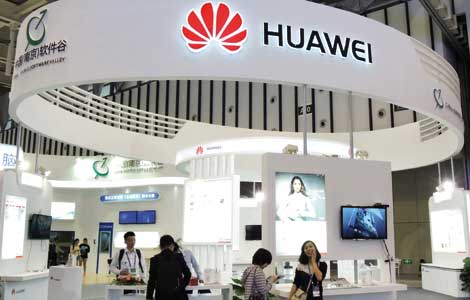FTZ entails more of an opportunity to HK
Updated: 2013-09-30 15:16
(Xinhua)
|
||||||||
The competition between Shanghai and Hong Kong is inevitable but not necessarily a bad thing, unless Hong Kong is worried about its own competitive strength or lacks confidence in its innovation capacity, he said. There are divisions of financial functions between Shanghai and Hong Kong.
"London and Frankfurt are both global financial centers. If I am investing in Germany, I will base my company in Frankfurt and meanwhile try to avoid risks by hedging transactions in London. Likewise, if I have investment in the Shanghai FTZ and hold yuan assets, I will try to avoid foreign exchange risk with hedges in Hong Kong or Singapore. The FTZ will not replace Hong Kong but sharpen its competitive edge."
The FTZ is a feature of opening-up, while Hong Kong needs to become more integrated with the Pearl River Delta to benefit from domestic economic reform. In this sense, Hong Kong has plenty to do in the future, Shen added.
Joe Zhou Fang, a chief research officer with Hong Kong's One Country Two Systems Research Institute, maintains that there will be competition between Shanghai and Hong Kong, and it will be no bad thing.
"At present, Hong Kong is the (world's) principal offshore renminbi center. Since Shanghai will also offer offshore renminbi services, there will be competition in this regard. What is more important is to make the business cake larger, so that Hong Kong's finance industry will have a new growth point," Fang told Xinhua.
Hong Kong started to develop offshore renminbi business in early 2004, but due to limitations on renminbi internationalization -- especially the restriction on renminbi cross-border flow under the capital account -- Hong Kong's offshore renminbi market is not big enough and fails to provide enough variety of products, he said.
"If the Shanghai Free Trade Zone accelerates the pace of renminbi internationalization, it will be good for Hong Kong. Renminbi will be used more widely, so there will be positive effect on Hong Kong," said Fang.
In Fang's view, renminbi internationalization is the biggest opportunity for Hong Kong. "There is huge room for growth in Hong Kong's renminbi business. Hong Kong should work with Shanghai. If Shanghai rolls out new renminbi products, it will create more growth room for Hong Kong. If more renminbi circulate globally, Hong Kong will get more business," he added.
Tse Kwok-Leung, head of Economics and Strategic Planning Department in Bank of China (Hong Kong), told Xinhua that Hong Kong has been actively involved in each round of China's reform, and has not only contributed to the nation but also benefited.
China entered the WTO in late 2001 -- which Tse sees as the milestone of China's last round of reform and opening-up -- and this sped up the reform of financial institutions. Four years later, state-owned banks, such as China Construction Bank and Bank of China, began to list their shares in Hong Kong and expanded their businesses in and through Hong Kong, which contributed to Hong Kong's growth and prosperity, he said.
Tse said it is predictable that the new round of reforms, marked by the FTZ initiative, is set to offer Hong Kong just as big a development opportunity as before.
"Hong Kong has its part to play in the development of the Shanghai Free Trade Zone. The FTZ is expected to focus on finance and trade services, in which Hong Kong has the edge. In the service sector, no matter how it opens up, Hong Kong will have opportunities, especially for Hong Kong's own companies," he said.
Tse also expects the reforms to bring more finance and trade multinationals into China, and they are likely to put their regional headquarters in Hong Kong and contribute to the city's economy.
Find more in

 Martial arts to attract golden week tourists
Martial arts to attract golden week tourists
 Investing a nation's wealth wisely
Investing a nation's wealth wisely
 This China Dream
This China Dream
 Williams, Li into second round at China Open
Williams, Li into second round at China Open
 Visible face of CIC investment
Visible face of CIC investment
 Up, up, Huawei finds new friends in Europe nations
Up, up, Huawei finds new friends in Europe nations
 Yuxi to shield Fuxian Lake by creating wetland area
Yuxi to shield Fuxian Lake by creating wetland area
 A man with passion for China
A man with passion for China
Most Viewed
Editor's Picks

|

|

|

|

|

|
Today's Top News
China issues guidance for government purchases
China calls on APEC to promote FTA integration
Japan, US kicks off 2nd round of TPP-related talks
Website launched to assist expat professionals
Shanghai opens free trade zone
50 foreign experts honored with Friendship Awards
Academic warns Obama on Pacific policy
US Confucius Institutes gather
US Weekly

|

|








